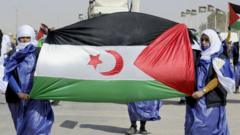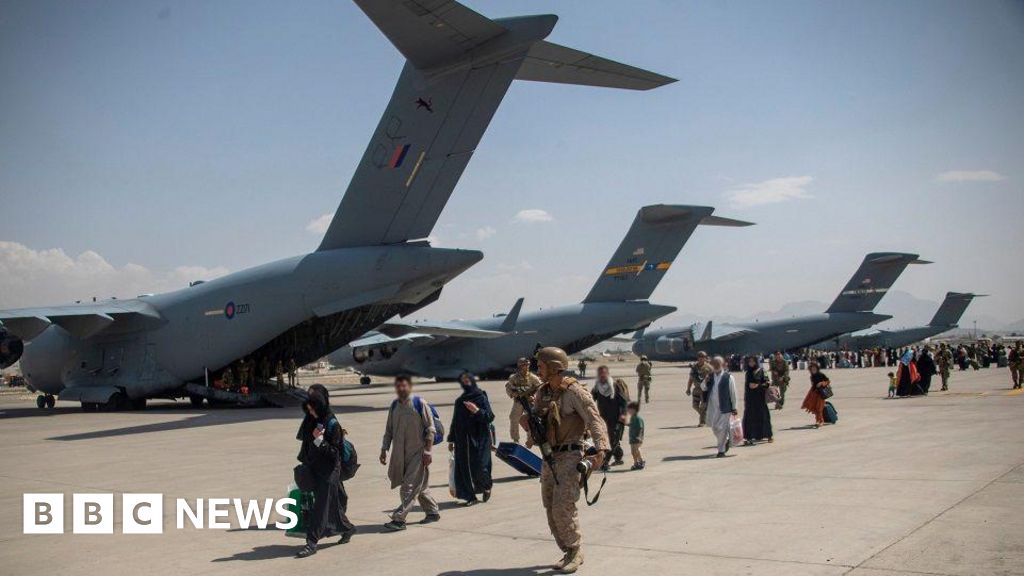In a significant policy shift, the United Kingdom has formally endorsed Morocco's proposal for autonomy in the disputed region of Western Sahara, a move linked to lucrative investment opportunities surrounding the 2030 men's football World Cup. Historically, the UK has maintained a neutral position in the territorial conflict, which has persisted for decades and is managed as a "non-self-governing territory" by the United Nations.
During a visit to the Moroccan capital of Rabat, Foreign Secretary David Lammy declared the autonomy plan to be "the most credible, viable, and pragmatic basis for a lasting resolution of the dispute." This affirmation is framed within a broader context of bolstering UK-Morocco relations through economic projects, particularly in infrastructure for the upcoming World Cup, co-hosted by Morocco, Spain, and Portugal.
Lammy also finalized agreements aimed at enhancing collaboration on various infrastructure initiatives, asserting that "British businesses will score big on football's biggest stage." These developments also open doors for UK firms to penetrate the Moroccan market significantly, with expected gains in sectors such as health and airport upgrades.
However, the shift in UK's stance has drawn criticism from Algeria, a key supporter of the Western Saharan independence movement. Algeria expressed its disappointment, stating that Morocco's longstanding plan had never proposed meaningful negotiations with the local Sahrawi population. The Western Sahara region, a mineral-rich former Spanish colony, remains a complex conflict zone, recognized by the African Union as deserving of independence but marred by Morocco's territorial assertions.
British diplomats clarified that the UK would only support Morocco’s position in exchange for solid business agreements and Morocco's renewed commitment to self-determination. Details of this agreement indicate that Morocco’s updated autonomy plan is anticipated, coupled with a call for renewed negotiations.
Foreign Minister Nasser Bourita of Morocco praised the UK’s new direction, labeling it an historic turning point in the two countries' 800-year relationship. Emphasizing the importance of economic ties, Lammy reassured that these agreements would directly benefit British businesses and enhance Morocco’s infrastructure.
The region’s historical conflict dates back decades, leading to intermittent ceasefires since the 1990s, yet a long-anticipated UN-backed referendum for the Western Saharan people remains unrealized. With this recent diplomatic shift, the stage could be set for renewed discussions, albeit against the backdrop of previous unfulfilled promises to the Sahrawi people.
During a visit to the Moroccan capital of Rabat, Foreign Secretary David Lammy declared the autonomy plan to be "the most credible, viable, and pragmatic basis for a lasting resolution of the dispute." This affirmation is framed within a broader context of bolstering UK-Morocco relations through economic projects, particularly in infrastructure for the upcoming World Cup, co-hosted by Morocco, Spain, and Portugal.
Lammy also finalized agreements aimed at enhancing collaboration on various infrastructure initiatives, asserting that "British businesses will score big on football's biggest stage." These developments also open doors for UK firms to penetrate the Moroccan market significantly, with expected gains in sectors such as health and airport upgrades.
However, the shift in UK's stance has drawn criticism from Algeria, a key supporter of the Western Saharan independence movement. Algeria expressed its disappointment, stating that Morocco's longstanding plan had never proposed meaningful negotiations with the local Sahrawi population. The Western Sahara region, a mineral-rich former Spanish colony, remains a complex conflict zone, recognized by the African Union as deserving of independence but marred by Morocco's territorial assertions.
British diplomats clarified that the UK would only support Morocco’s position in exchange for solid business agreements and Morocco's renewed commitment to self-determination. Details of this agreement indicate that Morocco’s updated autonomy plan is anticipated, coupled with a call for renewed negotiations.
Foreign Minister Nasser Bourita of Morocco praised the UK’s new direction, labeling it an historic turning point in the two countries' 800-year relationship. Emphasizing the importance of economic ties, Lammy reassured that these agreements would directly benefit British businesses and enhance Morocco’s infrastructure.
The region’s historical conflict dates back decades, leading to intermittent ceasefires since the 1990s, yet a long-anticipated UN-backed referendum for the Western Saharan people remains unrealized. With this recent diplomatic shift, the stage could be set for renewed discussions, albeit against the backdrop of previous unfulfilled promises to the Sahrawi people.



















